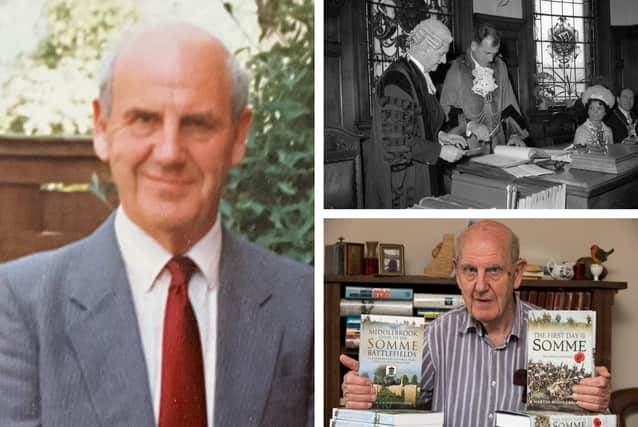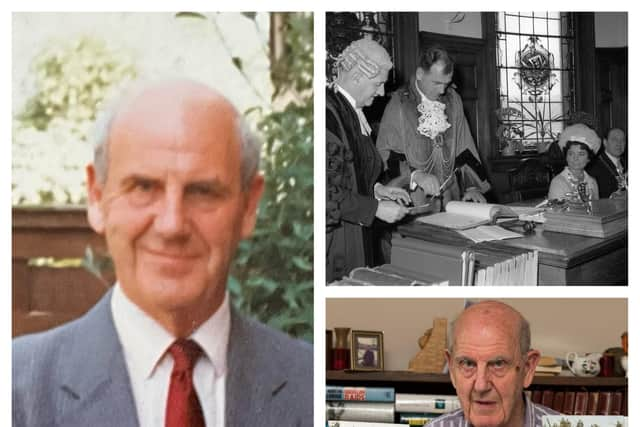Tribute paid to 'exceptional historian' and former mayor of Boston following death


Norman Middlebrook, known by his middle name ‘Martin’, died peacefully in Cheltenham on January 19.
Martin was born on January 24, 1932, at his parents’ home in Hartley Street, Boston, and spent most of his life in the town.
Advertisement
Advertisement
On leaving school aged 17, he joined his father’s potato merchant business. He would later give National Service in the Middle East for the Royal Army Service Corps as a transport platoon commander; work as a farmer; and also serve as a member of Boston Borough Council – becoming mayor in 1966 – and, then, Lincolnshire County Council.


For many, though, Martin was, first and foremost, a renowned military historian and author.
The father-of-three wrote 16 books on the First and Second World Wars, including the highly respected The First Day on the Somme – his debut, published in 1971.
This book was based on the recollections of hundreds of British, Commonwealth, and German veterans about the first day of the Battle of the Somme, July 1, 1916, when the British Army suffered almost 60,000 casualties.
Advertisement
Advertisement
It was inspired by a pilgrimage Martin made in 1967 to First World War cemeteries in France and Belgium, where he was deeply moved by the number of headstones marked July 1, 1916.
In 2001, a survey conducted by The Western Front Association showed the book to be the runaway favourite of members taking part, amassing the same points as the second, third and fourth titles combined.
In the 1980s and 1990s, alongside writing more books, Martin ran successful battlefield tours to various locations.
These included the whole length of the Western Front in the First World War from the Belgian Coast to Verdun, plus Normandy to cover the 1944 invasion beaches and battle area and also Gallipoli to focus on the 1915-1916 campaign.
Advertisement
Advertisement
In addition to this, Martin was also a military history consultant for TV (contributing, for example, to the BBC’s The Battle of the Somme programme in 1976) and conducted numerous radio interviews.
Honours in his life included receiving the Canadian Guild of Authors medal in 1989 and being appointed Knight of the Order of the Belgian Crown in 2004.
He was also a Fellow of the Royal Historical Society and a keen member of The Western Front Association.
David Tattersfield, vice-chairman and development officer at The Western Front Association, on behalf of the association, said: “Martin Middlebrook was an exceptional historian who will be greatly missed. His various books on the First World War were instrumental in bringing the subject to a new generation.
Advertisement
Advertisement
“It is possible that without his influence many people would not have been drawn into studying this highly important part of our history, and perhaps the upsurge in remembrance in the Great War which we see today would not have happened.”
Martin is survived by three daughters, six grandchildren and one great-granddaughter. He was predeceased by his wife Mary in 2014; the couple had been married since 1954.
In a joint statement, his daughters, Jane and Anne, said: “We loved and admired our father very much and are very proud of his achievements.”